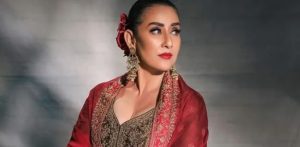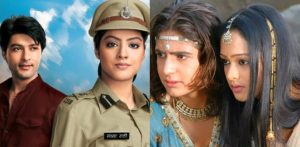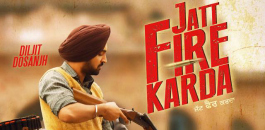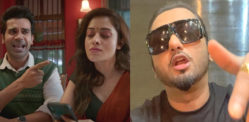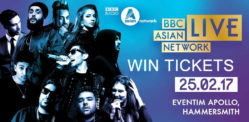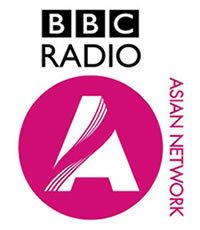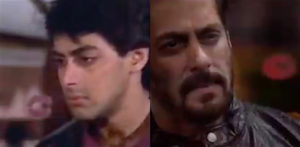"We felt that some key parts of the record were unsuitable for daytime play."
Chart-topping song, ‘Jatt Fire Karda’ has been banned on the BBC Asian Network’s daytime shows because of its controversial content.
The popular track sung by Diljit Dosanjh released at the beginning of April 2015.
It has enjoyed over 2 million views on YouTube, and continues to reign at number 1 on the Official Asian Download Chart.
But the BBC Asian Network implemented their daytime ban due to explicit mentions of violence and gunshot sound effects throughout the track. Host Suzi Mann even avoided playing the song on her Chart Show, saying:

While it contains no swearing or misogynistic views, the song has created controversy among British Asians. And some believe the song promotes the glorification of violence:
“Where there are restrictions on guns/ That’s where the Jatt fires/They spend months in the gym/If someone speaks out against us/You feel fear in your heart/When I put a gun to your temple.”
Songs and lyrics aside, the video itself has been the centre of much criticism. It graphically shows men being shot in the head, with the final scene showing Diljit shoot numerous bullets in the chest of a man sprawled across the floor.
Critics have questioned the appropriateness of such a song and video for younger audiences, and even its suitability for daytime listening or viewing.
You can watch the video here:

Taking a stand against its sensitive themes, the BBC Asian Network expressed in a statement: “In this particular case, in line with the BBC’s editorial guidelines, we felt that some key parts of the record were unsuitable for daytime play.
“Diljit Dosanjh is an important artist for the BBC Asian Network and as the number one position testifies, this is a popular record. But we have a clear responsibility to our audiences and will therefore only be playing an edited version of the record on our specialist evening programmes.”
With ‘Jatt Fire Karda’ topping the charts for the last 3 weeks, it is evident that Bhangra music has changed considerably over the years. But where has this evolution stemmed from?
The sexualisation of women and glorification of violence are common features of American rap and hip-hop. And such songs are hugely popular around the world including South Asia.

There is also a big rise in Bhangra songs openly mentioning guns, fast cars and women. But does this mean that such songs are no longer appropriate for some audiences?
Some do: “I think the violent, new edgy bhangra is not right. Guns and castes should not be glorified. I also dislike the music videos which show men with guns. There’s enough violence and discrimination in the world; it’s a bad reflection of our times,” says Sabraj.
But a few artists and personalities are inclined to disagree. Punjabi artist, Tru Skool, told BBC Asian Network’s Nihal: “To be honest, I don’t think it is having an impact as you may feel. It doesn’t bother me at all really. I don’t think they’re rude lyrics or vulgar lyrics, in the sense of doing things to women or are derogatory.”
The lyrics of using guns as well as the sound effects of gunshots in the track could be quite alarming for younger audiences out on the school run. But as DJ Harpz admits, many young British Asians won’t understand the lyrics of the song to begin with:
“People from my generation won’t understand it, only the title. It is quite deep, and even being fluent in Punjabi myself, I don’t fully understand it.”
But aside from guns and violence, Diljit’s mention of ‘Jatts’ is also an interesting one. Jatts have notably been an integral part of Bhangra music heritage.
The genre tends to promote ‘sher-kom’ or lionheart culture. The ‘Hero’ fights pseudo themes of injustice, and adopts a rebellious bravado, signifying his superiority over others.
As Dips Bhambra adds: “There is a whole thing about being Jatt. It’s been going on since 60s and 70s, so it is nothing new.”
But as media and awareness has evolved, people now see the mention of ‘Jatts’ in songs as derogatory and unacceptable.
So who does the responsibility lie with when it comes to the creation and publicity of such songs? The artist or broadcasters?
Harpz doesn’t believe that Dijit should be reprimanded for what he creates musically: “He is just being an artist, he’s just making art.”
So are broadcasters left to censor inappropriate content for their listeners and viewers? And where does it end? Is it only Bhangra music that crosses the line?
Harpz adds: “There are so many more tracks out there that are far more worse than this track, especially when it comes to Bollywood.
“There are plenty of Bollywood tracks being played on every Asian station that I would think do come across as a bit derogatory. There are a lot of sexual references. Bollywood is by far the worst.”
With so many questionable Bollywood songs receiving uninhibited airtime play 24/7, is it right for songs like ‘Jatt Fire Karda’ to be censored? Or is our perception of what is suitable for audiences or not beginning to waver?












